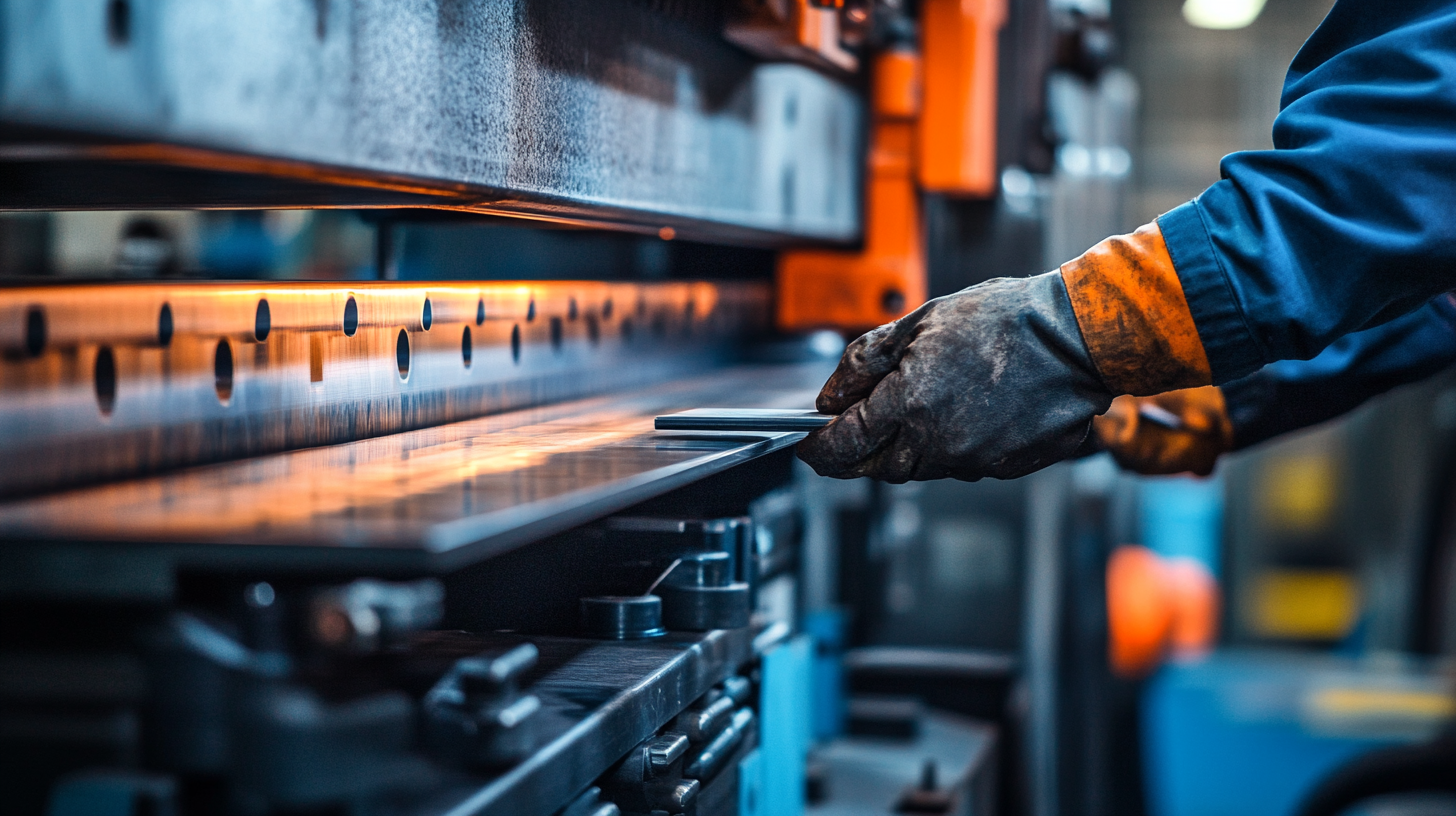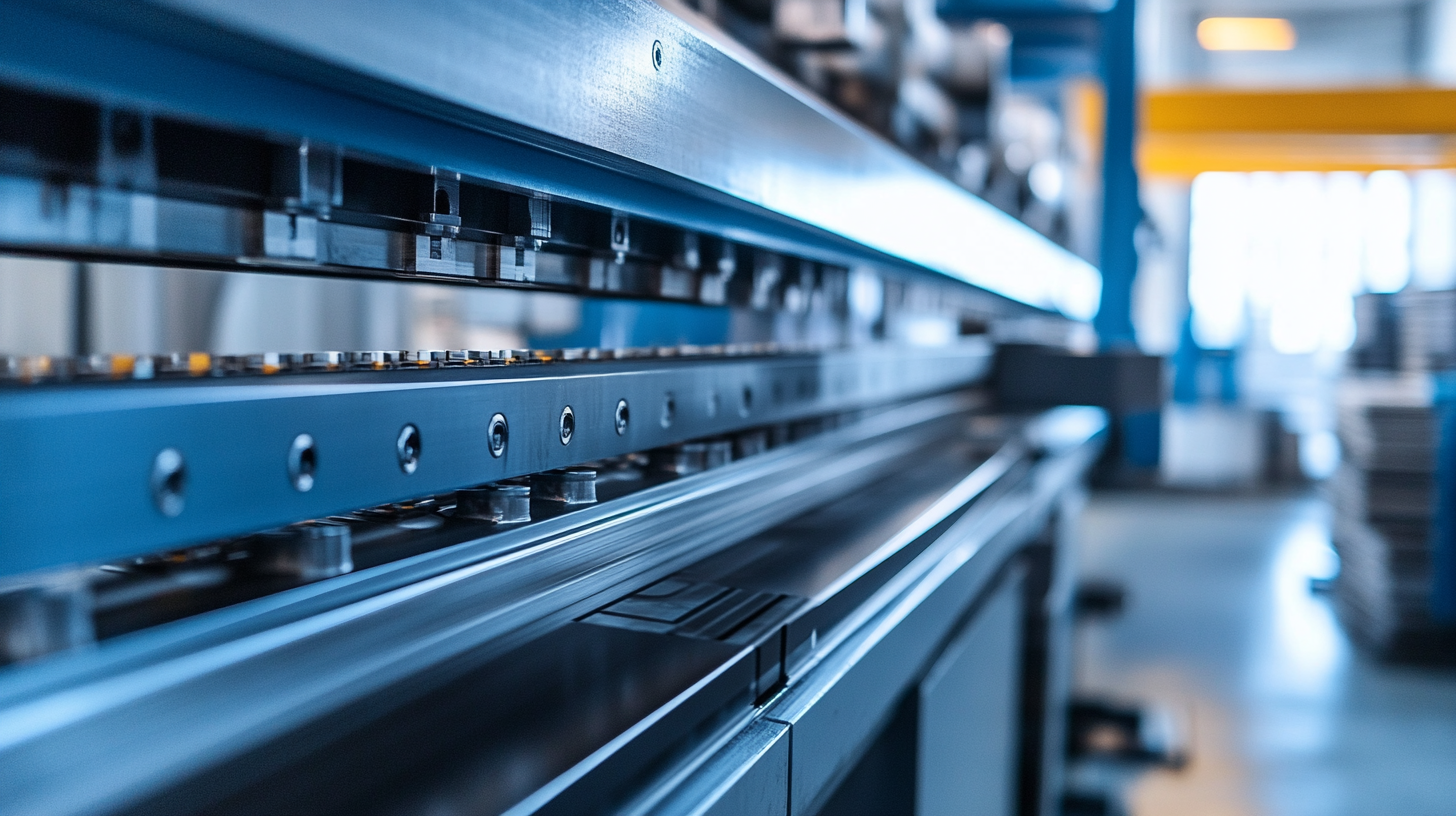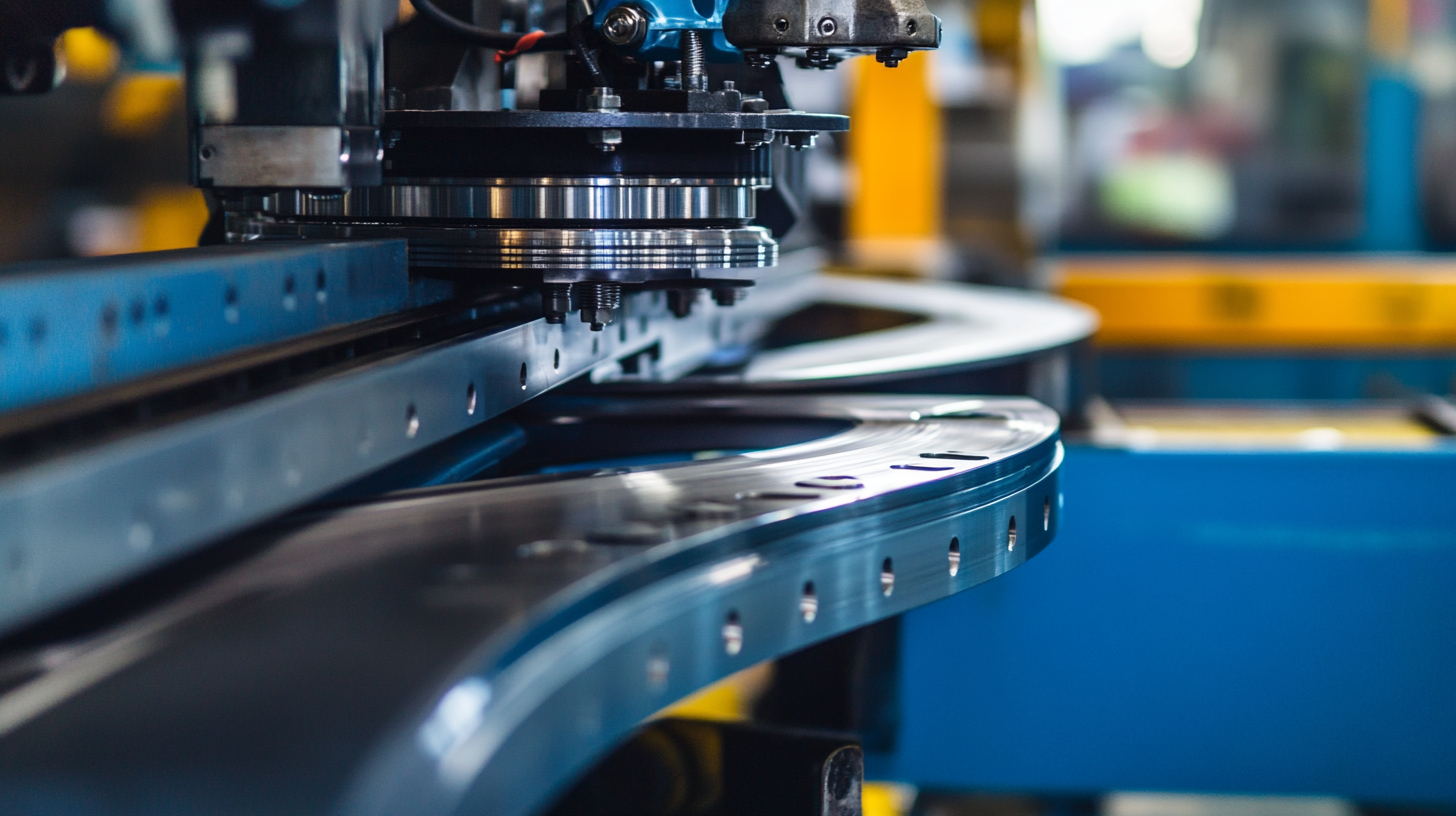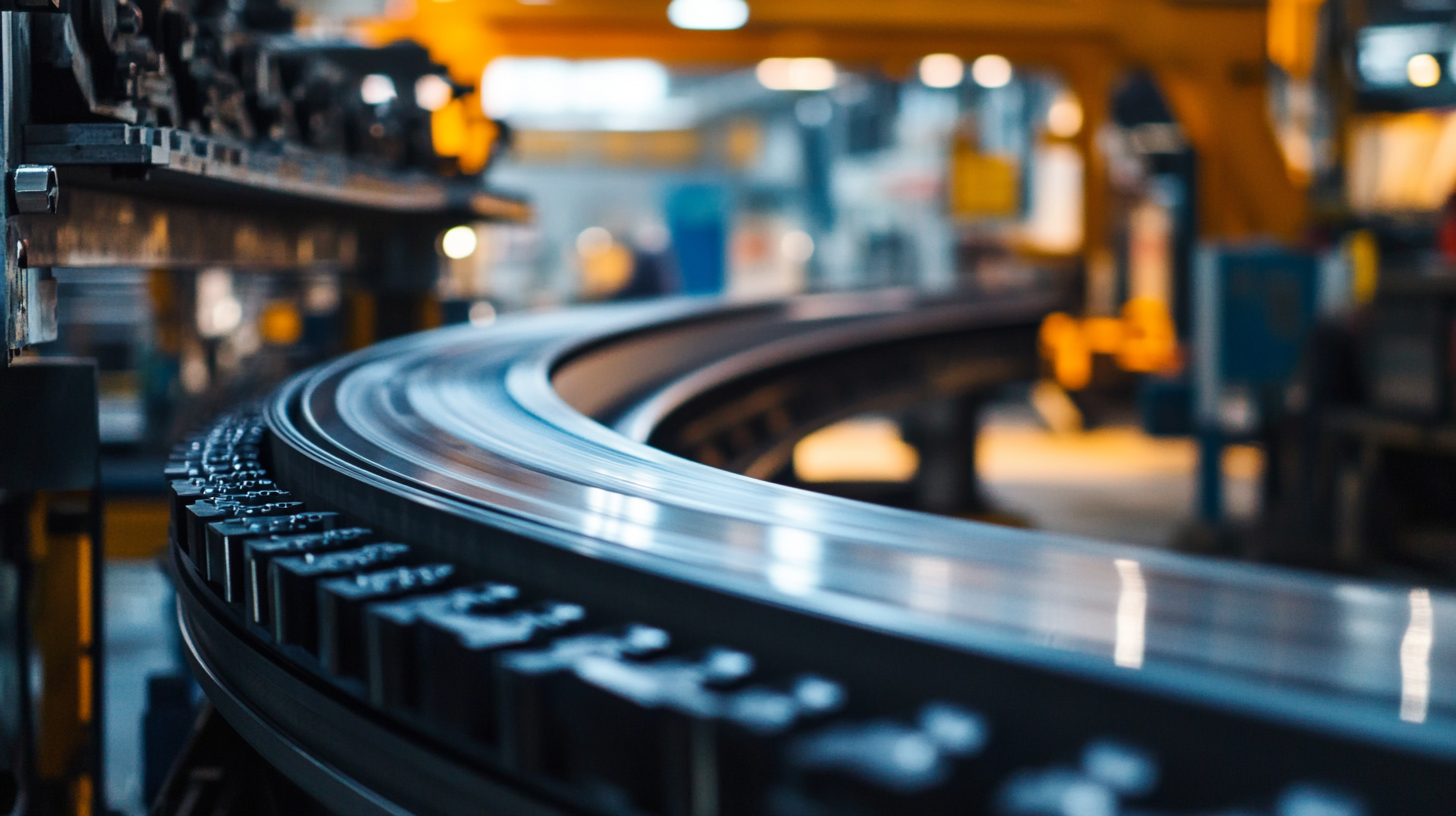The bending machine industry plays a vital role within various manufacturing sectors, especially in the section of shaping metals and other materials according to specifications. The latest report from MarketsandMarkets stated that the global bending machine market would reach USD 5.1 billion by 2025 at a CAGR of 4.5%, starting from 2020. The market, thus, underscores the requirement of high-quality bending machines whose performance must comply with international safety and quality standards. Moreover, manufacturers need to optimize production efficiency but remain compliant. Therefore, the process of certification for bending machines becomes an essential consideration.
Certification of bending machines in accordance with contemporary global standards doesn't just assure the safety of the product but also improves the reliability of the machine in operation. The International Organization for Standardization (ISO) and their specific other regulatory bodies have installed a framework as a guideline for such certifications to help the manufacturers. In a report of the European Committee for Standardization (CEN), it has been noted that compliance to such standards would significantly reduce hazards due to equipment failure and workplace accidents, hence protecting both employees and investment. This blog would concentrate on different global standards for bending machine certifications, along with the significance and overall impact of those standards on the industry.

Bending machine certifications therefore represent an important facet of the manufacturing industry since these guarantee equipment compliance with global safety and performance standards. These certifications are essential because they offer credibility to bending machines, thus creating uniformity in the process. Companies adopting certified machines will benefit from better efficiency and decreased equipment failure risks. In a competitive environment, the existence of certified bending machines will definitely enhance a company's reputation. This demonstrates the company's commitment to quality and safety, which fosters trust among its clients and partners. Moreover, international standards can prove advantageous in penetrating fresh markets and meeting local regulations, thereby reaffirming the need for certification in the industry.

To harmonize safety, efficiency, and reliability during manufacturing, globally accepted standards for bending machines are imperative. As industries develop, the focus should be that much stronger on formulating robust standards alongside the steady strides made in technology, such as with flexible solar panels. In Spain, researchers have been working to establish a new bending standard specifically for these solar cells, which brings to the forefront the need for unique testing methods able to accommodate the exceptional properties of modern materials.
Wherever the age of innovation finds itself often...Bending standards must generally embrace the flexibility of application. While principles of old are left unchanged, possibly some of them need to be applied in a new way to suit newer designs and materials. The practice of having such conversation remains critical to the integrity of the industry and nurturing the next generations of engineering and manufacturing whale over the globe.

Certification Bodies are responsible for the setting up of international standards in bending machines, both in the context of safety and compliance with various industrial requirements. They come with a certification process that assesses the performance of any machinery against specific performance and quality standards. Hence, manufacturers and operators of such machines have assurance that the equipment is up to standards internationally.
Some of the prominent ones are certification bodies for safety standards such as ISO and many local regulatory agency contracts. Such bodies award certificates for machine safety and ensure best practices in the manufacturing and operational aspects, thereby having a better efficient industry and workplace safety. These certification bodies now have begun to change greening relations with industry requirements in creating international environmental standards for the sustenance of machines since they have begun to change their standards in respect to sustainability.

Compliance with standards for bending machine certification worldwide has a huge bearing on the safety and reliability of industrial work. Testing procedures must comply with various regulations, which often entail stringent assessments of machine performance and failure safety mechanisms. The certification process usually requires various tests on machines, including load trials and safety interlocks, to confirm their compliance with the general safety directives.
In parallel, advanced technology, namely safety light curtains, has now begun playing its vital role in raising the safety standards on the shop floor. These are basically optical safety devices that serve to protect operators from hazardous situations arising in the course of a machine's operation. As the bending machine market continues to expand, showing a large promise for all these standards, compliance will be instrumental in maintaining safe and sound manufacturing environments.
As industries are changing, so are the standards and certifications pertaining to bending machines. The changes that would shape certification in the near future would be more inclined towards sustainability and efficiency. Indeed, the uptrend-style green initiatives will soon be echoed as evident from recent endeavors by the organizations to promote such sustainable practices worldwide.
The bend testing machine market is on an ascent. From 2025 up to 2035, the bend testing machine market will show significant growth potential. The principle holds that precision and quality in manufacturing will attract more certifications, thus as the pressure mounts globally, technological innovations would have devised better testing systems to ensure adherence and reliability for operations of bending machines. The past will surely shape the future.
Bending machine certifications ensure that equipment meets global safety and performance standards, enhancing reliability and promoting uniformity in production processes.
Companies that use certified bending machines often experience higher operational efficiency and reduced risks associated with equipment failure.
Certified machines demonstrate a commitment to quality and safety, fostering trust among clients and partners in a competitive market.
Adherence to international standards can facilitate entry into new markets and ensure compliance with local regulations.
Compliance requires adhering to global standards, involving rigorous assessments of machine performance and safety mechanisms through specific testing procedures.
The certification process typically includes load simulations and safety interlock assessments to confirm compliance with industry safety guidelines.
Technologies like safety light curtains are becoming essential for protecting operators from potential hazards associated with bending machine operations.
Ensuring compliance with safety and performance standards is crucial for maintaining safe and efficient manufacturing environments during market expansion.